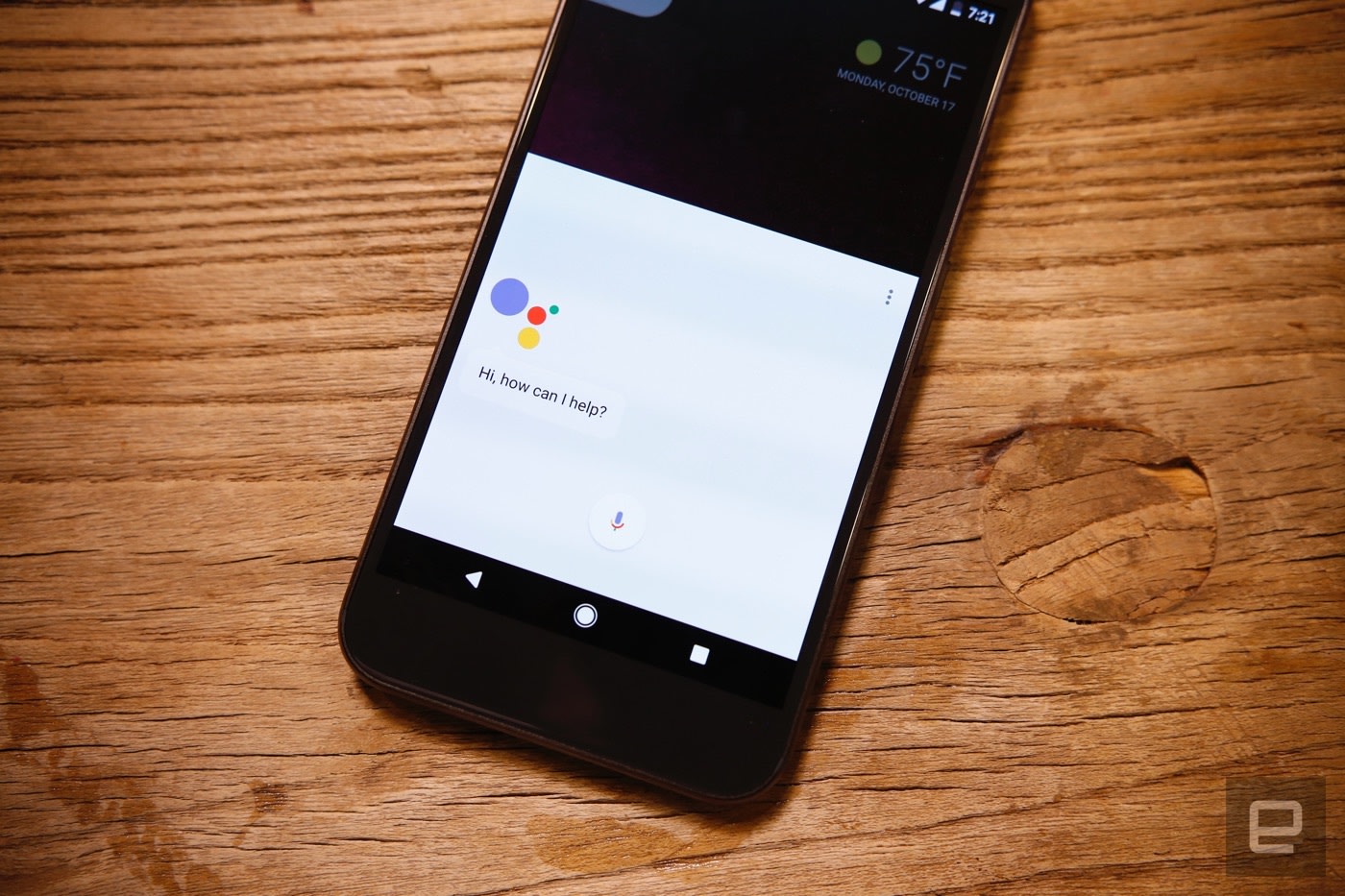
At Google I/O last May, the tech giant announced its own voice-powered hub to rival Amazon's Echo: the Home, which would be powered by their AI helper, Assistant. The Siri-like software was promoted as a standard feature on the search titan's first phone, the Pixel, which came out later in fall. But Google announced a plan weeks ago to bring the hub and the help back together, promising to bring some of Home's connected device control to the company's smartphone line. Today, they started rolling out Home Control for some versions of their mobile platform, allowing users to use voice commands to fiddle with their network of connected home devices.
It's a little unclear which software can access the feature: 9to5Google and AndroidPolice got it working on Pixel phones running Android 7.1.2, Google Play Services 10.2.98 and the latest beta version of Assistant (6.12.19). Once you've loaded those up, just navigate within Assistant's settings to find the new "Home control" tab to make your smartphone a hub for products from Belkin WeMo, Philips Hue, Honeywell, Nest and Samsung SmartThings.
The new feature obeys the same voice commands that work on Google Home. Obviously, it's a handy substitute for folks who don't want to cough up $130 for the external hub. But given that Assistant is only live on Pixel and Pixel XL phones, it's unclear when this feature will spread to the rest of the Android family.
First up on that list could be LG's G6, which is reportedly dropping Alexa for Assistant. But then again, Hyundai's connected cars got hooked up with Google's voice-controlled helper, so who knows where Assistant's hub capabilities will spread.
They're developing tech to review police body cam footage in real time
The Americans will fight the trolls in Europe.
MIKA will talk telecoms technicians through fixing network faults.
Windows 8.1 is a free upgrade to Windows 8. It’s what the original Windows 8 should have been, with important improvements for both desktop and tablet users. So why are more people using Windows 8 than Windows 8.1?
Humility is often rewarded with loyalty while boastfulness more often generates resentment.
If you need your own helper to stir coffee or laser-engrave stuff.
With the increase in the use of mobile devices (Which includes Ipads, Iphones, Smartphones and android tablets). More people access the internet through these d...
In today's world, kitchens have become the focal point of many homes. Not only is the kitchen a place to have family meetings around the dinner table, but it'...
You can also snag a $60 gift certificate with a GoPro Hero5 Black.
Contrary to the traditional belief that gaming is merely an addictive source of entertainment and diversion, recent research has proved that gaming has numero...
Say goodbye to boxy wagons.
Simple, straightforward security for everyone on the internet.
Using flash memory to run a desktop system, like Windows, was advised against for quite some time. But what made it a desirable and viable option for mobile devices? Today’s SuperUser Q&A post has the answer to a curious reader’s question.
Norton, like most other antivirus tools, is rather intrusive. It installs a toolbar in your web browser, pops up notifications even when you download safe files, and shows you various special offers and reports. But you can set Norton to only notify you when there’s an actual problem.
